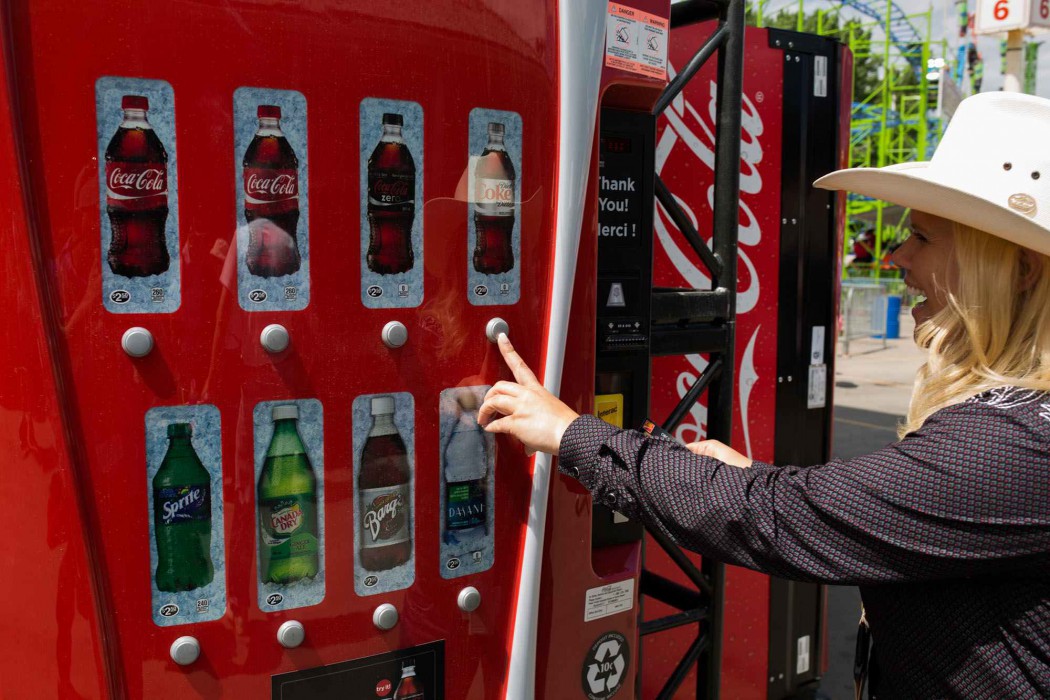
Disabled Americans are fighting for justice in Magee v. Coca-Cola Refreshments USA, Inc., a Fifth Circuit decision that has been appealed to the U.S. Supreme Court.
In 1990, Congress, in the name of justice, passed the “Americans with Disabilities Act” (ADA), a labor law that prohibits unjustified discrimination based on an individual’s disability. Twenty-five years later, the reach of ADA is being hotly debated. One case that addresses this debate, and that may be taken up by the U.S. Supreme Court, is Magee v. Coca-Cola Refreshments USA, Inc. The question before the Court is whether Title III of the ADA’s ban on discrimination of disabled people in public accommodations is limited only to businesses that can be entered. In other words, are citizens with disabilities protected from discrimination in all spaces or only those that can be physically entered?
What should SCOTUS rule? Well, first let’s look at the facts. Magee, the petitioner, is a blind citizen who could not order from the respondent’s, Coca-Cola Refreshments USA, Inc., vending machine. The vending machine had neither voice-related technology nor smartphone adaptability (this technology is available; if you don’t believe me, just ask Siri). Thus, because of the petitioner’s disability, he could not participate in commerce. Looking at the facts, the petitioner’s dilemma seems like discrimination based on disability, such as when a mall does not have wheelchair-accessible entrances. We are not done here, however, because the protection of the ADA does not depend on discrimination alone. The discrimination must also occur at a “public accommodation.”
Well, what the heck is a public accommodation? According to the ADA, it is any entity, private or public, that affects commerce; moreover, the ADA gives a long list of examples (e.g., inns, hotels, motels, restaurants, movie theaters, museums, parks, etc.). The case, therefore, comes down to whether a vending machine, like an inn or hotel, is a place of public accommodation.
There are two main substantive arguments the Court could rely on to make its decision. One is a textualist argument; the other is argument that relies on legislative purpose. For readers who are current or former law students, welcome back to first-year statutory interpretation. For those who are unfamiliar with theories of statutory interpretation, let me briefly explain. Textualism, wielded by the late-great Justice Scalia, is a theory of statutory interpretation that focuses on the literal meaning of text to derive the meaning of a statute. Purposivism, on the other hand, is a theory of statutory interpretation that focuses on the purpose or intent of the drafters of legislation to derive the meaning of a statute.
Looking at the text, a vending machine should be considered a public accommodation. Title III of the ADA, as mentioned above, gives examples of public accommodations. Specifically, it gives a list of specific entities, such as restaurants or bars, which end in a catchall phrase (i.e., “other sales or rental establishments”). The list could lead one to interpret the ADA as applying only to those entities that can be entered into—bars, unlike vending machines, can be entered into to by customers. The catchall phrase, however, allows for a broader reading of Title III—vending machines, just as bars, are “sales establishments” because they produce commerce. This broader reading is preferable to the “entrance” argument because the latter leads to absurd results. For example, customers don’t enter hotdog stands, but it would be absurd to say that Title III does not apply to them.
Further, considering the legislative purpose of the ADA, vending machines must be construed to be public accommodations. Title III of the ADA was passed to provide a clear and comprehensive national mandate for the elimination of discrimination against individuals with disabilities. Ruling against the petitioner would go against this purpose, and instead state that it does not matter if blind people have equal access to vending machines.
It’s safe to say that no person wants disabled people to be discriminated against, or more specifically, not be provided with an opportunity to use vending machines. But for good reason, the law doesn’t care about popular opinion; it only cares about what the law is. In this case, however, the law seems to match popular opinion.Looking at the text and the purpose of the ADA, it seems that vending machines should be considered public accommodations. The Fifth Circuit disagrees, however, so it’s up to SCOTUS to settle this debate—if it chooses to do so.